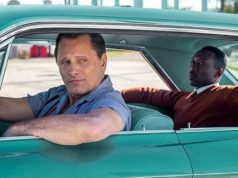As advanced as we like to say we are, living in the future and all, it’s astonishing to watch “Selma” in 2015 and realize the events it depicts happened only 50 years ago. In America! Mostly in the parts of America that have always embarrassed the other parts, but still.
Yet at the same time, this heartfelt, compelling docudrama about Martin Luther King Jr. and the 1965 civil rights marches shows how far we’ve come. Racism today is usually the institutional, subconscious kind, not the overtly hateful, “I ain’t servin’ no N-words in my restaurant” kind. We may disagree about what constitutes “discrimination,” but nearly everyone concurs that it’s ignorant and wrong-headed to view one race as inferior to another. That alone is an improvement over 50 years ago, when open, boldly stated racism was still socially acceptable in many areas.
Early in the film, when a middle-aged black woman named Annie Lee Cooper (Oprah Winfrey) shuffles into the courthouse in Selma, Ala., to register to vote, and is given an impossible series of questions to answer to prove her worthiness, I had two thoughts. First: It’s nigh unbelievable (though sadly true) that this was a common tactic to prevent blacks from voting. And then: How glad I am that it isn’t common anymore. We still have problems, yes, including some very serious ones, and institutional racism might be harder to eradicate than the other kind. But at least clerks aren’t asking black people to name all of Alabama’s county judges before they can register to vote. That’s something, anyway.
Directed artfully and with tremendous restraint by Ava DuVernay, “Selma” deals with that very idea — the question of how to balance satisfaction over our victories with frustration over how much progress has yet to be made. In the beginning, newly minted Nobel Peace Prize recipient King (David Oyelowo) meets with Pres. Lyndon B. Johnson (Tom Wilkinson), who has just signed the landmark Civil Rights Act of 1964, ending segregation. MLK urges him not to rest on his laurels but to move on to the next problem: actually enforcing the law so that black folks in the South can register to vote. Johnson, depicted here as a pragmatic politician, wants to focus on his new War on Poverty, not immediately jump into another civil rights battle.
Even among those who, like King, want to act now, there is disagreement over which tack to take. None of MLK’s supporters want to waver from his commitment to non-violence (Malcolm X shows up briefly to offer an alternative view), but how, exactly, do we overcome the Selma courthouse, “a citadel defended by fanatics”? Which repressive law or custom or practice do we take down first?
The film’s marches and demonstrations are stirring, punctuated with acts of unprovoked violence and awful tragedy. DuVernay, whose “Middle of Nowhere” won her a best director prize at Sundance 2012, resists the urge to lay it on thick with melodrama and pathos, thereby avoiding the pitfall of shameless manipulation that many films of this type fall into. She lets the story speak for itself, judiciously using devices like slow-motion and silence to guide our emotions subtly, rather than yank them.
One scene featuring a minor figure in the Civil Rights movement — the grandfather of a marcher murdered by police — puts a human face on things, drawing us into the battle on a personal level, not just an intellectual one. (A nice touch: The actor playing the grandfather is Henry G. Sanders, star of Charles Burnett’s 1979 film “Killer of Sheep,” a milestone in the history of African American cinema.)
The closest we get to a mustache-twirling caricature is J. Edgar Hoover (Dylan Baker), a sniveling conniver who conspires with Johnson to tap King’s and other activists’ phones and to sow discord in King’s marriage to Coretta (Carmen Ejogo). The facts are basically right, but the character is written and performed just a little over the top. On the other hand, Alabama governor George Wallace (Tim Roth), a plainly racist jackass and segregationist, isn’t depicted with much nuance, but neither is he a cartoon. He’s a believable racist jackass.
David Oyelowo seems to capture King’s essence, the cadence of his speech as well as his faith in God. When King is confronted with his marital infidelities, Oyelowo conveys a multitude of feelings with no words at all. The performance reflects the film as a whole: graceful, understated, not showy, yet deeply moving.
A- (2 hrs., 7 min.; )
Originally published at GeekNation.





